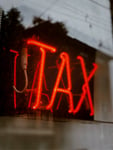In the heart of Nonthaburi, beneath the gaze of watchful eyes, a scene unfolds that could be ripped from the vibrant panels of a politically charged comic book. Activists, armed with nothing but placards etched with impassioned pleas, converge on the monumental front steps of the Public Health Ministry. It’s a battle between health and commerce, a tapestry of tension woven in February’s air, captured in a single frame—a photograph that encapsulates an entire movement. (Image credit: Pattarapong Chatpattarasill)
Enter the Stop-Drink Network Thailand, a bastion of sobriety advocates who have recently cast a heavy shade of disapproval upon the cabinet’s latest gambit: a radical slash in taxes for alcoholic libations, ostensibly for the holy grail of tourism promotion. Yet, what glitters is not always gold—or so they warn—as this strategy might just be a shortcut to a burgeoning set of societal afflictions.
Indeed, the reverberations of Tuesday’s cabinet decree could be felt in the quivering grips of the wine goblets and the silent clinks of ice in whisky tumblers. Where a draconian 100% levy on commercial wine imports previously loomed, now a meager 5% stands, a veritable drawbridge lowered to welcome foreign vineyards’ conquests. The personal import wine tax, erstwhile a modest 10%,? Done away with entirely! And what of our homegrown, traditional tipples? Exempt from the 10% sales tax, provided they tipple not over the 7% alcohol content. Another cut—a halving of the entertainment venue excise from 10% to a paltry 5%—all wrapped with a bow as a New Year’s gift to the populace and the siren call for tourists.
The man helming the Stop-Drink Network Thailand’s ship through these tumultuous tax waters is none other than Theera Watcharapranee. This director has not minced his words; the new tax breaks struck like lightning on a clear day. He laments the corkscrew turn of events, deriding the government for brandishing the twin swords of tourism and economic gain while sidestepping the advancing army of alcohol-induced societal woes.
Theera unfurls his argument with the debonair of a seasoned sommelier presenting his finest bottle: Wine, once an indulgent splurge, now threatens to flow as freely as tap water. The once-luxurious libation’s price plummet now tempting the masses into its grape-infused embrace. “Alcohol is no mere quaff,” he insists, “it’s a siren’s call to addiction, capable of wreaking untold havoc on the gilded tapestry of public health.”
Armed with an arsenal of data and the World Health Organization at his back, Theera brandishes the sobering statistic that a mere US$1—the equivalent of a modest 34.67 baht—invested in alcohol control can bloom into an $8 boon for the economy. This calculus extols the virtues of a tax hike on spirits as a deterrent to indiscriminate guzzling, while concurrently lining government coffers and assuaging the nation’s healthcare burden.
What’s left unspoken in these economic equations, however, is the spectral shadow of the healthcare costs, the spectral wraith of productivity lost to the scourge of road mishaps. These specters haunt the nation’s ledger, undiminished by the cheer of poured libations or the clinking of coin.
Amid this fiscal revelry, then, Theera stands, a sentinel above the fray, posing the million-baht question: Can the government truly court Bacchus and Hygeia alike, or will the scales of public welfare irretrievably tip in favor of the former? As the story continues to unfold, the repercussions of this decision will not be confined to the marbled halls of ministries, but will whisper through the streets and homes of a nation in an ever-expanding dialogue between pleasure and prudence.


















Be First to Comment